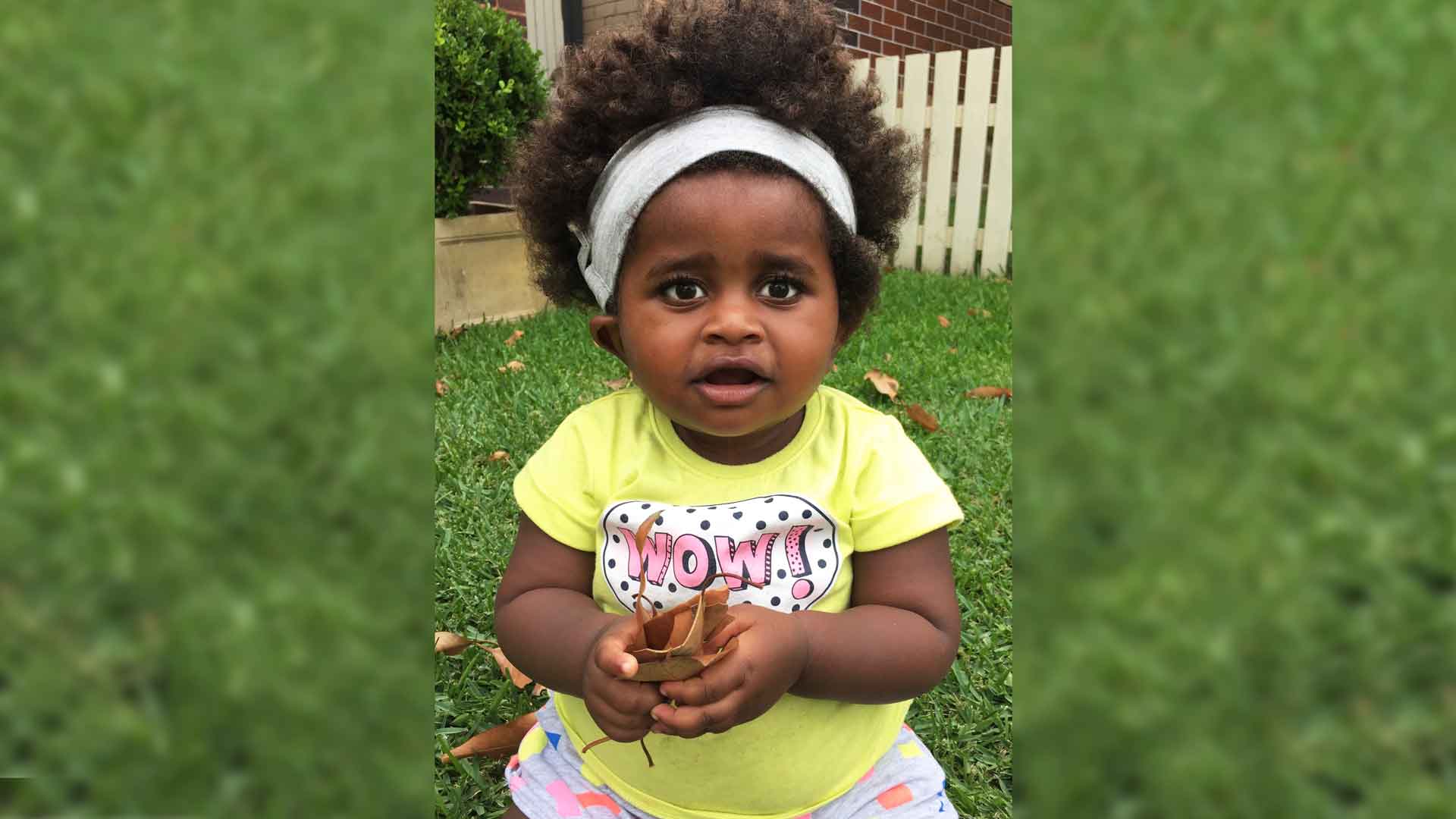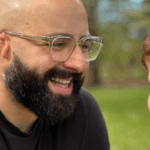MED-EL
Published May 10, 2017
Challenges of a Cochlear Implant Journey: Baby Mika Enters the World of Sound

Last week we introduced you to New Zealander Tash and her daughter, Mika. Tash shared her experience of flying from Ethiopia to Dubai to get her daughter Mika’s hearing tested and find out Mika’s options. In this post, Tash shares what the cochlear implant surgery was like, including Mika’s learning process and their big plans for the future.
The Surgery
It’s been a rollercoaster. When we went in for surgery in Australia, the entire team were women—the surgeon, the anesthetist, and all the nurses. As they knocked Mika out for surgery and I held her in my arms, they were dancing and singing to her with her monkey and doll. I laughed at them and said “You know she can’t hear you right?” When I walked out of the operating room leaving my baby in their hands, the surgeon had her arm on me and said “Don’t worry we’ll take great care of her”. I left the room completely calm knowing they had everything under control.
We had some issues with the scans leading up to the surgery and we were not sure if the surgery would be totally successful for Mika—but we gambled. I remember Dr. Birman coming out to the waiting room 4 or 5 hours after I had left Mika with her – she was beaming but also had tears in her eyes. She told me how perfect things were and how when they tested the devices Mika’s brain scans had lit up.
Mika’s Fast Learning Progress
Since Mika has been activated, she has made some great progress. I have found moments where I have been able to laugh and find some positives for both Mika and me. My bad language driving was wiped clean as I knew I had to start fresh once she got her ears.
I guess a standout moment was when we taught her to do a “haka” (traditional war cry/cultural dance) when her Kiwi doll played the accompanying song. I hid the doll behind my back one day and turned it on. Mika immediately started slapping her thighs and looking around for it. I knew she was hearing and she even knew what the sound connected to—this was at just 6 weeks post-activation.
Now at 4 months post-activation, Mika is now responding to her own name, understands many words, and is imitating a lot of sounds and trying to say words. She has started saying her first words “bye bye” and “up”, and is making animal and transport noises for corresponding toys. However, every day presents different challenges. Having a friend’s child who is younger than Mika hand me a toy and say truck is something that is enough to set me off emotionally.
Living in Ethiopia, somewhere with no access to AVT therapists, play groups, ENTs and other medical advice can be extremely challenging. Every day when I walk out the door to teach other people’s children, I always have an immense sense of guilt. I want to be with my child, teaching her all day, every day. It’s hard for friends to have to listen to you all the time, so the online community has become another huge support network for me, almost like a family. Being able to ask questions where there is no judgement, and this sense of “getting it” or “having been there” almost lifts the strain immediately.
Mika’s Love of Her Implants
I’ve been lucky that Mika loves her cochlear implants. If one of her audio processors slips out of her headband she tries to put it back on herself. Mika taps her ears in the morning if I am taking too long to put them on. At night she gently hands them to me as I lay her into her bed. I was terrified that it would be a battle to keep her audio processors on, and so I feel so fortunate that she enjoys hearing so much. I love seeing Mika’s animated face when she hears things—we call it her “wow” face . Mika is such a happy child that it is hard for me to feel sad. She doesn’t know anything else other than her own experience, and is so happy with life. I have to remind myself to be more like her all the time and to live in the present moment. I think this whole journey with Mika is also making me a better teacher. It enables me to look at every child with the understanding that this is someone’s baby, their pride and joy, and I am so motivated to support them as best as possible. This experience has made me redefine what our normal is and what matters most in life.
I think that is the hardest part is trying to remain sane and live day-by-day and just focus on being in the moment with Mika. I try not to think “Will she talk? Will she be able to attend mainstream school? Will she enjoy music? Will she. . .” The list is endless and can mess with you if you let it.
Finding Time For Rehabilitation
Rehabilitation is a challenge. Mika is at home every day with her Ethiopian nanny, Lucy, who is amazing. However, English is not Lucy’s first language, but Mika needs to be immersed in it every day. The type of highly engaged therapy and play Mika needs is not natural for Lucy—talking constantly is not natural for many people. However, Lucy has been incredible in wanting to learn and working with Mika. I have also employed a teacher who comes in each day for an hour to work on specific lessons that I leave behind, and focus on aspects of our fortnightly Audio Visual Therapy skype sessions with a team in Sydney.
As soon as I get home, Mika and I spend 2-3 hours together just talking, playing, reading books and singing. It’s non-stop until she goes to bed. We kick off the mornings the same. I talk through everything I am doing—it is exhausting to talk non-stop, but I know that it’s worth it. Mika needs to hear everything 1000s of times in order to make connections. On walks together, we stop and make the sounds of any animals we see. I point out anything I can in order to give her as much access to language as possible.
Moving Countries For Our Family
We recently traveled to Dubai again just last weekend for a mapping session. This required travel for services is certainly a burden, and I know that we need to be somewhere with access to weekly AVT sessions, playgroups and other “hearing” specific services. Sadly, once the school year finishes up in June, Mika and I will be leaving Ethiopia and moving to Hong Kong. My new position and school in Hong Kong has flexible working hours. This will enable me to spend a lot more time during the day with Mika to ensure she progresses.
During the first week after I found out about Mika’s profound hearing loss someone passed me on Emily Perl Kingsley’s piece titled “Welcome to Holland’. It’s a good reminder for parents like me who are struggling with the reality they’re trying to deal with. “If you spend your life mourning the fact that you didn’t get to Italy, you may never be free to enjoy the very special, the very lovely things. . . about Holland.”
Thanks, Tash!
Like this post on baby Mika’s hearing journey?
MED-EL
Was this article helpful?
Thanks for your feedback.
Sign up for newsletter below for more.
Thanks for your feedback.
Please leave your message below.
Thanks for your message. We will reply as soon as possible.
Send us a message
Field is required
John Doe
Field is required
name@mail.com
Field is required
What do you think?
MED-EL


